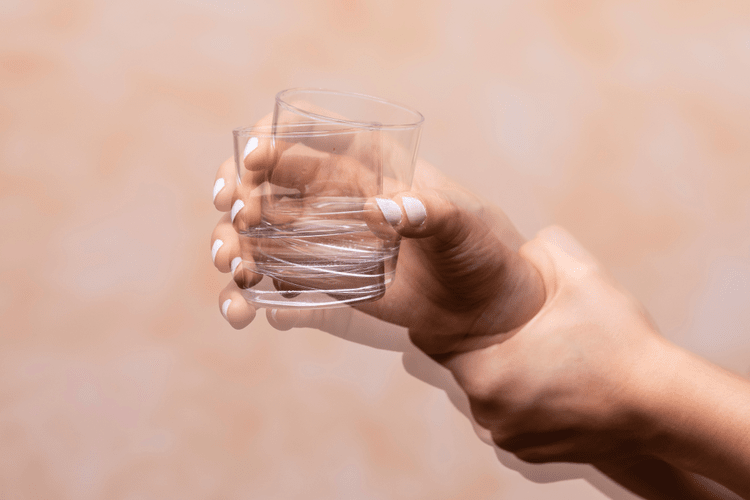A mocktail looks like a cocktail but doesn’t have any alcohol in it. Other people won’t be able to tell the difference just by looking at your glass. If you recently had surgery or an injury, your doctor will be careful with the pain medication they give you, because some of those drugs can make you more likely to relapse. Ask your doctor about nonmedical ways to manage your pain, like massage or acupuncture. Have some sober friends you can invite as your plus-one to a social event like a party or wedding. And stay in touch with your sponsor and call them if you’re feeling anxious or uncomfortable.
Specific Sobriety Milestones
- For instance, if your substance use disorder is diagnosed as mild, an outpatient program might be recommended.
- Self-directed recovery enables you to design a plan of recovery that takes account of your individual needs and goals.
- With help from a healthcare professional, you can start looking for a treatment program that meets all of your unique needs.
- Try to keep your finances in order and keep in mind that big improvements are unlikely to happen overnight.
Inpatient or residential treatment can be beneficial for patients with more severe problems, including co-occurring disorders. As no two persons are the same, people experience emotional sobriety differently. BetterHelp offers affordable mental health care via https://hram-sveta.ru/medicina-ot-a-do-ya-dlya-pacientov-i-vrachey/150525-sezdy-kardiologov-spasayut-zhizni-ezoterika.html phone, video, or live-chat. The ongoing healing involved in recovery is rarely accomplished without the love and support of others. Many paths lead to recovery, and one of the most popular involves 12-step recovery programs like Alcoholics Anonymous (AA).

The Definition of Sobriety

Alcohol can still impact your driving if you have a BAC under the legal limit of 0.08%. Regardless of how much you’ve had, it’s important not to get behind the wheel of a car (or a boat) when drinking. This summer, make sure you’re sober enough before getting behind the wheel of a boat or car. Many factors contribute to how long alcohol stays in your system. If you wish to contact a specific rehab facility then find a specific rehab facility using our treatment locator page or visit SAMHSA.gov.
Step 2: Reach Out
In your quest for sobriety, you’ll have a moment where you in your wallet (or stare at your bank account) and suddenly notice how profitable you’ve been the last few weeks. When you’re drunk, you don’t really think about all the money you spend because it’s not just about the money on alcohol, but the money to get alcohol. Ubering to and from a bar alone can be costly, but without those trips, you’ll find yourself with a substantial savings quickly. Organizations like Alcoholics Anonymous or Narcotics Anonymous are other ways to build a support network.

- In many cases, outpatient programs are good fits for people with relatively stable home environments and strong support systems.
- She realized she had more in common with the people in the program than she’d thought.
- Research shows that if you maintain these types of toxic relationships, your chances of relapsing are greater.
- Some of the most creative people used artistic expression to showcase what they’re feeling.
“It’s about communicating openly and listening actively to what they say is working for them.” This can also be a critical conversation to have because sometimes, the person in recovery will withdraw because they feel like they aren’t fun anymore or that their sobriety is a burden. By letting them know you’re open to alternative activities, https://ativanx.com/2019/07/04/finding-parallels-between-and-life-4/ and especially by being proactive in your suggestions, you can help prevent them from feeling isolated or excluded, Russell says. Residential treatment facilities typically use a selection of therapeutic approaches. They are usually aimed at helping people live a substance-free, crime-free, sober life following treatment.
- This will probably make you sleepy, but it’ll also help to center you.
- The path to sobriety isn’t an easy one, but these steps can help you get on the right track so that you can work toward your goal of quitting drinking for good.
- It also gives you a sense of purpose that can help you stay focused.
- Setting goals gives you something to look forward to and rewards your hard work and dedication to staying sober.
This allows them to deal with challenging situations and emotions. Generally, sobriety is viewed as the achievement of enjoying a successful life in recovery. Sobriety involves positive mental, physical, and spiritual well-being. Another way of defining sobriety is to say that it is the natural state of a human being. This means that a person’s behavior and thoughts are not governed or influenced by intoxicants, like drugs or alcohol.
Get Involved Online
These programs allow members to obtain sponsors who are willing to guide them through the treatment program. Additionally, support group attendance – whether 12-step or some alternative program – is a crucial part of many aftercare programs. Drug and alcohol abuse treatment can be sought in a variety of settings and specific program types. Many with relatively severe substance use issues elect to attend inpatient or residential rehab programs. If you are committed to taking the steps necessary to quit abusing drugs or alcohol, treatment professionals and members of your support group can help you throughout the recovery process.
What is Sobriety?
This therapy makes the most of a patient’s readiness to shift their behavior and enter treatment. Patients who do not receive additional treatment following detox may have a higher chance of relapse. Financial issues and problems finding and keeping employment can be triggers https://celebrationvet.com/blog/page/4/ for relapse. Try to keep your finances in order and keep in mind that big improvements are unlikely to happen overnight. There are a number of online forums where you can find others’ stories, from app-based communities like Sober Grid and Daybreak, to dozens of reddit groups.





